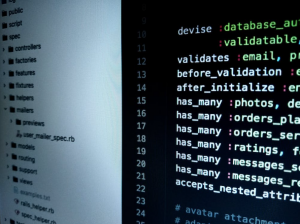
Introduction
In our increasingly digital and energy-dependent world, effective power management has become crucial. Whether you’re an individual, a business, or an organization, optimizing your power usage not only saves you money but also reduces your carbon footprint. In this article, we will explore some essential power management tips that can help you make the most of your energy resources while promoting sustainability.
- Energy-Efficient Appliances
When it comes to power management, your choice of appliances matters significantly. Opt for energy-efficient appliances that bear the ENERGY STAR label or have high Energy Efficiency Ratings (EER). These appliances consume less power and perform just as well, reducing your energy bills.

- Unplug Devices Not in Use
Many electronic devices consume power even when turned off. This phenomenon is known as “standby power” or “phantom power.” To combat this, unplug devices or use power strips to disconnect multiple devices at once when they are not in use. This simple habit can save a substantial amount of energy over time.
- LED Lighting
Replacing traditional incandescent bulbs with energy-efficient LED lights is one of the easiest and most effective power management strategies. LED bulbs use significantly less energy, have a longer lifespan, and provide better lighting quality.
- Smart Thermostats
Invest in a smart thermostat that allows you to control your heating and cooling systems remotely and set schedules for different times of the day. This helps you optimize your home’s temperature and reduce energy consumption.
- Proper Insulation
Ensure your home or office is well-insulated to maintain a consistent temperature. Proper insulation prevents heat loss in the winter and keeps your space cool in the summer. This reduces the need for excessive heating or cooling, leading to energy savings.
- Solar Panels
Consider installing solar panels on your property to harness clean, renewable energy from the sun. Solar power can significantly reduce your electricity bills while reducing your reliance on fossil fuels.
- Energy-Efficient Windows
Replacing old, drafty windows with energy-efficient, double-glazed windows can help maintain indoor temperatures and reduce the need for heating or cooling. This is an effective long-term power management strategy.
- Energy Audits
Perform regular energy audits for your home or business. An energy audit can pinpoint areas where energy is being wasted and provide recommendations for improvements. Many utility companies offer free or subsidized energy audits.
- Power Strips with Timers
Use power strips with timers to automatically turn off devices during specific periods, such as overnight. This ensures that devices are not consuming power unnecessarily while you’re asleep or away from home.
- Employee Awareness
For businesses and organizations, raising employee awareness about the importance of power management is crucial. Encourage employees to turn off lights, computers, and other equipment when not in use and to report any energy wastage.
Conclusion
Effective power management is not only about saving money but also about reducing your environmental impact. By implementing these power management tips, you can lower your energy consumption, decrease your carbon footprint, and contribute to a more sustainable future. Whether you’re an individual, a business, or an organization, adopting these practices will not only benefit you but also the planet.







